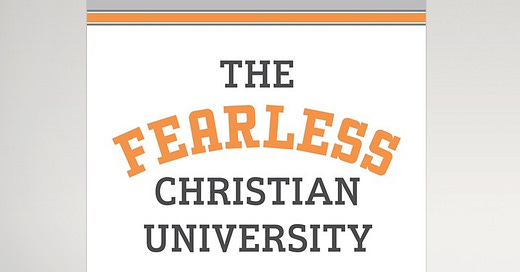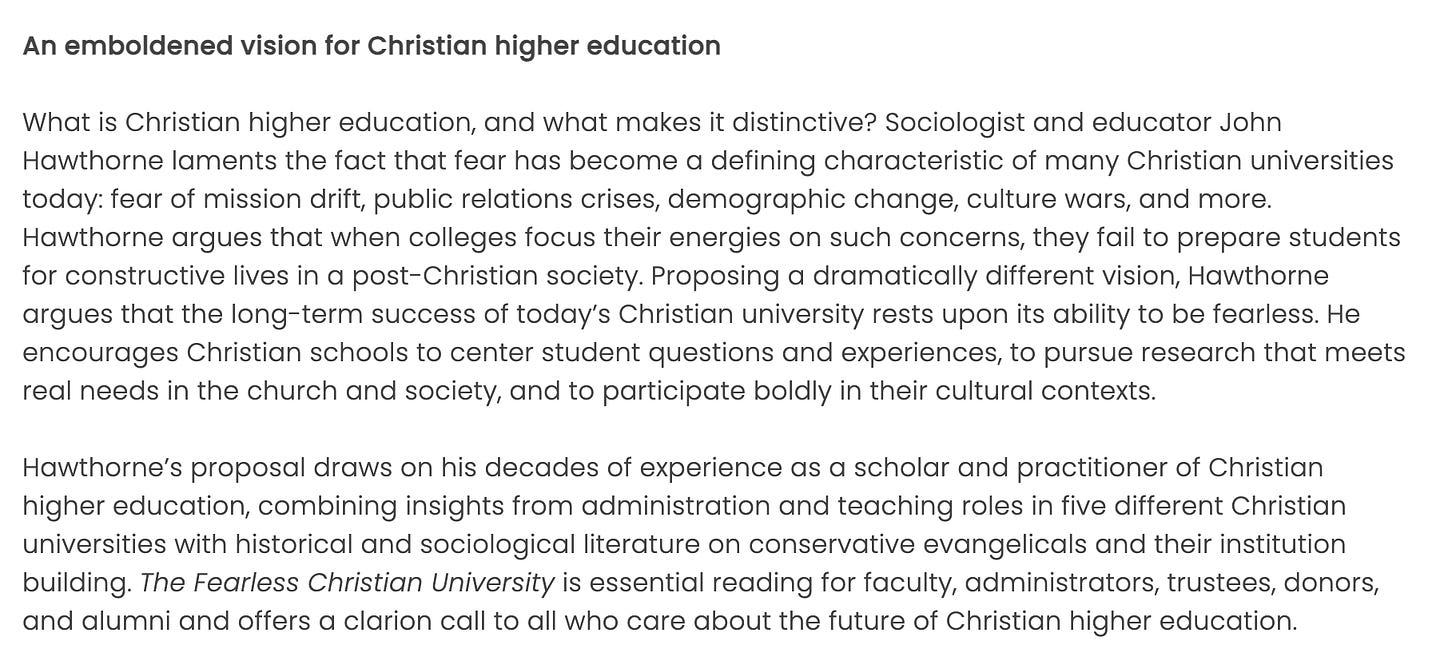While I was on the road last weekend, an important story appeared in Newsweek. Titled Conservative Campuses Are Facing Cancel Culture Problems, it tells the story of a number of Christian university faculty members who lost their position or who decided to leave voluntarily because the powers that be disapproved of the positions they had taken on social media and elsewhere. Of the seven stories recounted in the story, three are friends and another shows up in my book.
Speaking of The Book, I am pleased to share some news! Last month I received a draft of the cover art and the potential ad copy. The book releases on February 13, 2025 and is now available for pre-order at your favorite sites. Here is what they look like:
Okay, with the ad out of the way, let’s get back to Newsweek.
Let me address this from the administrative perspective. These aren’t my positions but I can read the tea leaves to see what is being done. Consider that in at least two of the stories (Matt Warner and Joey Cochran), they were on annual contracts and the administration felt no reason to address their concerns. In this market, there will be more people eager to take the classes.
If the institution wants, there are other avenues available. One can find handbook phrases that allow the institution to do what it wants. In Aaron Werner’s case, he was told that he was in violation of a section of the Liberty handbook that “refers to an employee's failure or refusal to comply with the "policies, standards and regulations" of Liberty University.” Which policies and standards weren’t made clear. Similar language was used on Kirsten Guidero at Indiana Wesleyan.
If faculty like Clive Craigen or Sam Joekel are seen as promoting diversity (read “being woke”) they must be corralled. This also happened to Julie Moore at Taylor (also an annual contract).
The most effective option for an administrator is to put pressure on the faculty member to voluntarily depart. Then the administration’s hands are clean, at least in their telling. When Karen Swallow Prior is given an ultimatum to stop posting on social media, she opted to leave Southeastern Baptist Theological Seminary.
One of the tried and true methods of these pruning efforts is through program reduction or consolidation. Put through a restructuring with nominal faculty input and suddenly ‘the troublemakers” are the ones left without a chair when the music stops.
This morning, Inside Higher Ed had a story about the surprising number of faculty at the University of Florida who had failed to successfully clear their new post-tenure review regimen. This comment from the UF union chair struck home for me:
She said UF’s implementation of the policy “really gives them a chance to get rid of people they don’t like.”
It’s not just the union perspective. In my administrative days, I heard the same admission from other senior administrators.
There may be a “financial crisis” or “restructuring” but the safe faculty members who never rock the boat are often safe from the cuts. Other faculty members notice this.
Another friend who is also a retired faculty member from a Christian university observed that the natural result of all this uncertainty is that it causes faculty to self-censor. The goal seems to be not to get on the administrative radar.
As I argue in the book, this is problematic on many levels. A faculty member who feels forced to self-censor winds up shortchanging the students by not addressing the complexity of topics. Faculty are denied their role as partners in the institutional mission and are instead seen as obstacles to be managed. The institutional leaders committed to some type of uniformity of thought to please donors or parents or pastors dilute the core educational mission of the university in service of preferred political stances.
So students are not well served, faculty members don’t encourage their friends to apply for positions, trustees are constantly worried about a potential breach in their artificial world, and the Christian university is seen as anachronistic by outlets like Newsweek.
The argument in my book is that it doesn’t have to be this way.






John, what do you make of the claim (at the end of the IHE article) that, at "liberal" universities, it is conservative and/or Christian professors who will be targeted for termination in the post-tenure review process? An interesting claim, it seems to me. It'd be interesting to see a profile / chart of the effects of this during this round at UF, eh?